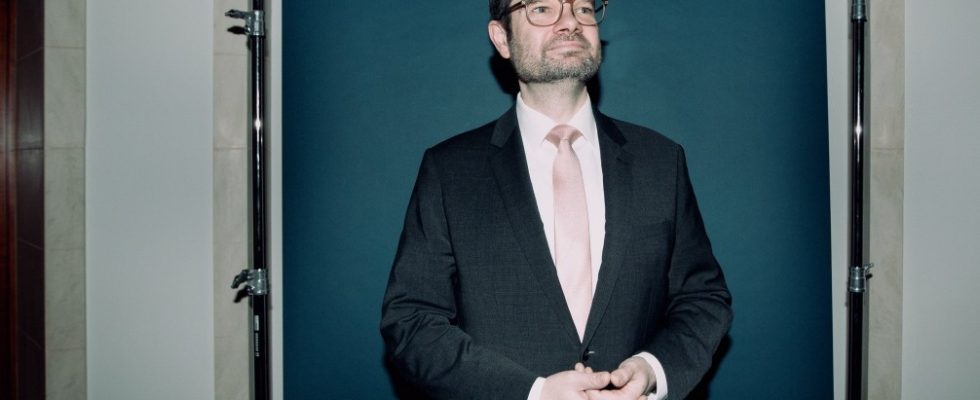The FDP’s efforts to bring down the EU supply chain law against the will of the coalition partners went further than previously known. As the Southgerman newspaper As we learned from party circles, the German Finance Minister and FDP party leader Christian Lindner even personally asked his Italian departmental colleague Giancarlo Giorgetti that Rome should not vote for the law in Brussels.
In doing so, Lindner not only bypassed Hubertus Heil’s Ministry of Labor (SPD), which is responsible for EU law in the federal government. In doing so, the finance minister also undermined the ongoing attempts to find a common position on the law in the federal government.
German business associations reject the law
The planned EU directive would require companies with more than 500 employees or an annual turnover of at least 150 million euros to ensure compliance with human rights and environmental protection standards along their entire supply chain. This would also affect suppliers from developing and emerging countries. If the requirements are violated, those affected could sue EU companies in the future if the customers in Europe have not done anything about it. There is a risk of fines of up to five percent of annual turnover. German business associations reject the law.
The Belgian EU Council Presidency has now postponed the vote scheduled for this Friday afternoon at short notice. Next Wednesday, the ambassadors of the member states are to make a new attempt to bring the directive to its goal. According to SZ information, in addition to Germany, Austria, Hungary, the Czech Republic and Finland, among others, did not agree. Italy kept a low profile until the ambassadors’ meeting on Friday and then signaled its abstention. Surprisingly, Ireland, Luxembourg and Cyprus also wanted to abstain. This would mean that the law would have missed the necessary majority because an abstention would have the same effect as a no vote. Belgian diplomats are now apparently looking for a way out.
It remains to be seen whether and how the FDP could be changed. Justice Minister Marco Buschmann (FDP), whose department has an advisory role in the negotiations on the supply chain law, clearly opposed the proposal in letters to the EU Commission and the governments of other EU states this week. The letter was an English translation of a letter that Buschmann and Lindner had previously sent to business associations.
The EU states, the Commission and Parliament had already reached an agreement
On the one hand, this was unusual because it is not the job of a justice or finance minister to make direct contact with foreign governments, bypassing the ministry actually responsible, in order to inform them of concerns about an EU law without there being a consensus in the cabinet.
On the other hand, the timing of the interventions caused great irritation in the EU. The federal government supported the law – albeit with the express reservation that it was “friendly to medium-sized businesses” – in the previous European procedure at council level. Buschmann’s letters arrived in the capitals and at the Commission after the EU member states and the European Parliament had already agreed on the text in the so-called trilogue process. Buschmann and the FDP presidium then made it clear that the result went too far for them and that they could not support it.
The FDP had behaved similarly over the past year with other EU laws: the ban on combustion engines, the ban on products made from forced labor, and the regulation of platform work. It initially looked like the party would block the AI law and the fleet limits for trucks and buses, but in the end it supported both.
Why not abstain if the traffic light partners disagree?
These individual cases may be different. But: Politicians and diplomats from other EU member states are concerned that the German FDP is increasingly pursuing politics in this way – without considering the collateral damage to European politics. Negotiating a law until a draft is in place that a majority of EU governments and Parliament can agree to, and then canceling this compromise after the trilogue agreement is “unacceptable,” says a Western European government representative. This damages Germany’s reputation as a reliable partner and reduces Berlin’s influence. “Why,” a diplomat asks, “should we accommodate Germany in negotiations if the result is later overturned?”
It is legitimate for Germany to have concerns about a certain EU law, according to Brussels. It could also happen that the Berlin coalition parties occasionally cannot agree on how Germany should vote in the EU. In this case, Berlin must abstain from what has been known in the Union for years as the “German Vote”. The traffic light had expressly decided to stop this practice. The coalition agreement states that they want to commit to EU projects “clearly and early on”.
But the frequency with which the FDP now questions fully negotiated European compromises – and then publicly argues about them with the coalition partners – is fueling a bad suspicion in the Brussels EU quarter: observers no longer see the reason for this in technical problems, for example because the ministries in Berlin vote too late. Rather, they suspect intent – that the FDP simply wants to make a name for itself in party politics and doesn’t care about the damage to the credibility of the Federal Republic at the European level.
Ultimately, Berlin is endangering the entire functioning of the European Union, it is said in EU circles. Ultimately, this behavior means: a trilogue result is no longer a reliably agreed agreement, but rather just an arbitrary intermediate step that can be renegotiated. If this view were to prevail in the EU, it could question the Union’s ability to function.

